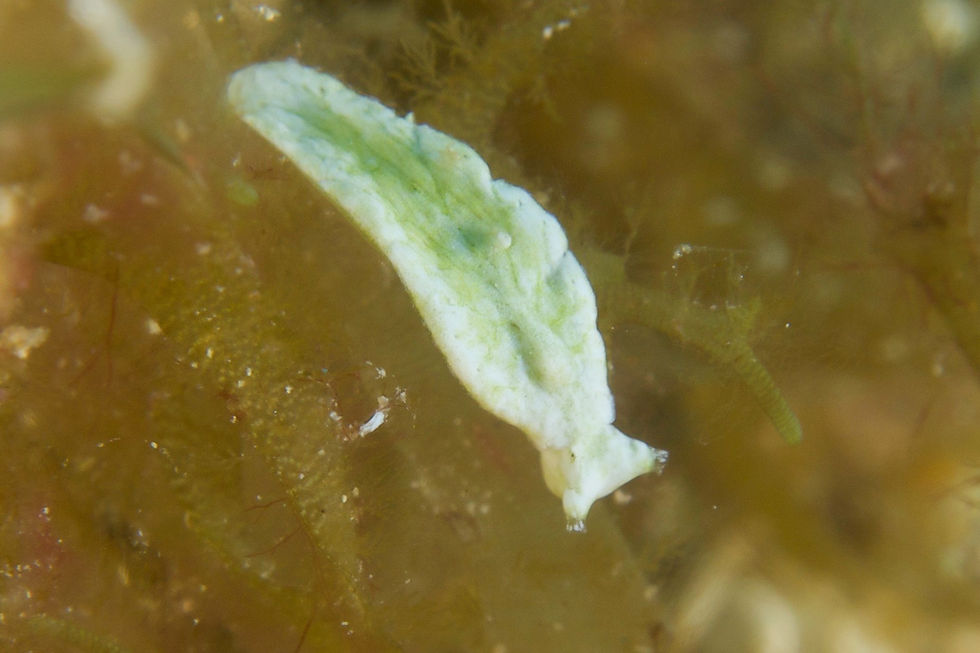Calling all Macro Lovers: New, undescribed Elysia sp.
- jacksonsdivecenter
- Apr 2, 2018
- 2 min read
It was a seemingly ordinary Tuesday. Rino and Elisa, plus underwater camera set up, headed out to El Aguila to go on a hunt for all things macro. As usual, Rino dropped down and headed immediately for a sand patch, away from the wreck, at about 120 feet. Garden eels, baby conchs, and big hermit crabs were in no short supply, but nudibranchs and flatworms were nowhere to be found.
Both divers started to shallow up, close to Pillar Coral dive site. At about 70 feet, they leveled out and continued the hunt. Still nothing.
At 62 feet, Rino noticed something small out of the corner of his eye, a small, round and dough-like object.

As is usually the case, if Rino stares long enough at what seems to be an inanimate object underwater, it inexplicably comes alive. And so the piece of bread dough moved, revealing rhinophores - a clear feature of a mollusc. Rino banged on his tank to get Elisa's attention.

The two stared at the creature for about 10 minutes until their dive computers began to beep. Luckily, the slug was on a piece of algae, so Rino was able to gently move it from 62 feet to 40 feet for better inspection and light. The next 45 minutes of the dive were spent documenting every angle and every movement of the gastropod. It became clear to both Rino and Elisa that this was an Elysia but none like they had ever seen before.
Elysia look like nudibranchs but are actually sacoglossans, a type of sea slug that grazes on algae. Some species actually incorporate the chloroplasts (molecular structures responsible for turning light into energy) from the algae into the lining of their digestive tracts, a phenomenon called cleptoplasty. This effectively allows them "feed" off of sunlight for several months at a time.
In Roatán, we have several species of Elysia in Roatán, including the lettuce sea slug (E. crispata), the ornate elysia (E. ornata), the striped elysia (E. sp.) and the sacoglassan sea slug (E. tuca). The Elysia found at 62 feet near the El Aguila is a previously undescribed species and confirmed as such by an independent nudibranch expert.
Here at Jackson's, we're looking forward to more macro-oriented and photo dives. There are still things to discover on this reef!














Comments